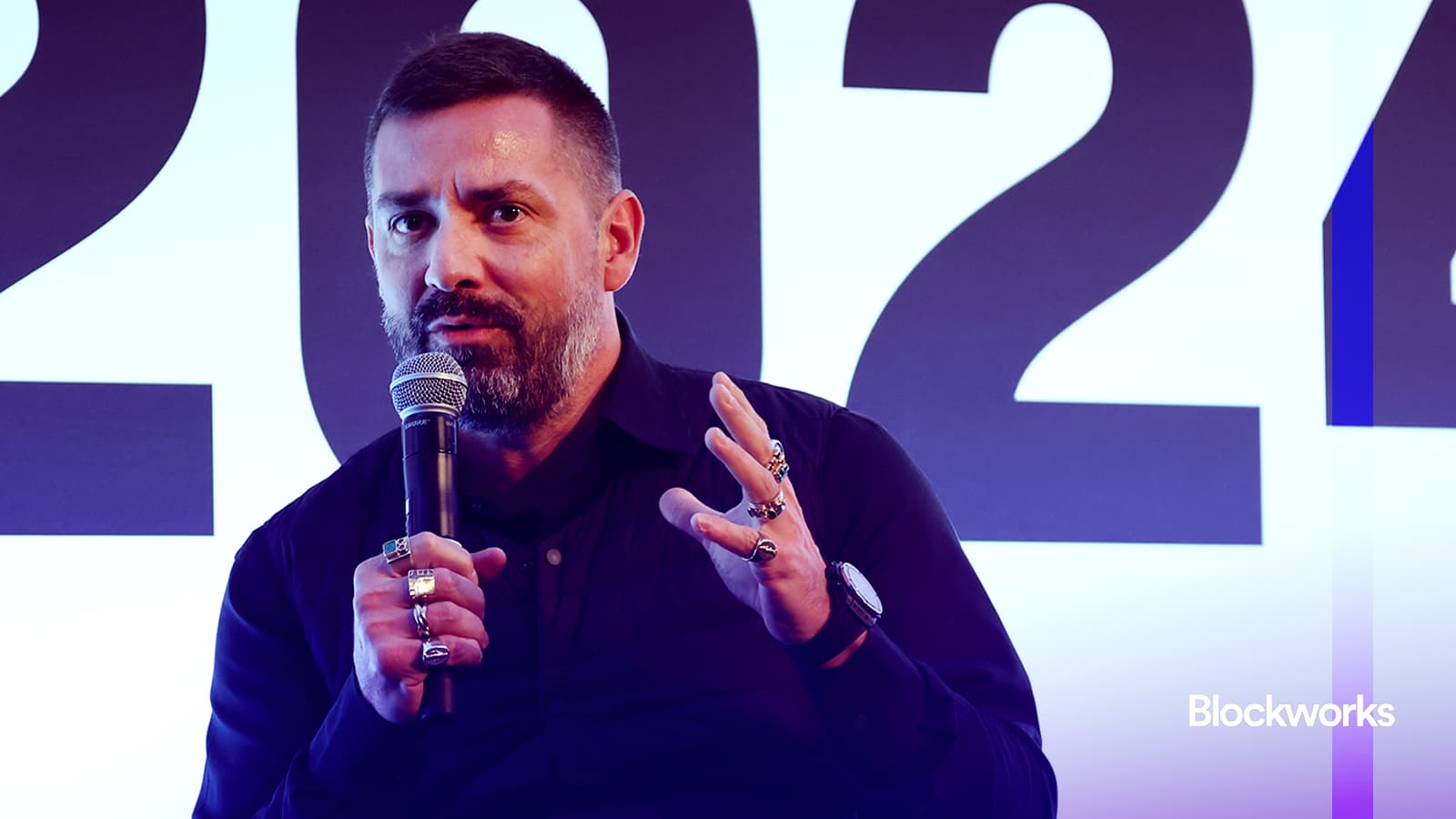Institutions are looking to ‘derisk’ as they enter crypto: Ledger
Ledger CEO Pascal Gauthier tells Blockworks that institutions have reached out about security in the wake of the Bybit attack

Ledger CEO Pascal Gauthier | Ben Solomon Photo LLC for Blockworks
This is a segment from the Empire newsletter. To read full editions, subscribe.
It’s been interesting to hear the Bybit hack mentioned more than a few times during DAS, a conference focused on the institutional adoption of crypto.
Obviously, it’s still a sore subject, and one that is still top-of-mind for industry experts like ZachXBT.
In a Telegram message yesterday, ZachXBT said that the time spent freezing funds after the hack has been “eye-opening,” and that the industry is “unbelievably cooked when it comes to exploits/hacks, and sadly [I don’t know] if the industry is going to fix this itself unless the government forcibly passes regulations that hurt our entire industry.”
That’s not exactly what you want to hear from one of the biggest onchain experts in crypto. But it shows the importance of safety as we mull what a strategic bitcoin reserve really looks like and how banks can offer services around custody and stablecoins.
Ledger CEO Pascal Gauthier told me he’s had a “number of institutions” reach out in the wake of the Bybit hack.
“Beyond custody, they’re looking for access to liquidity from self-custody or regulated custodians … Ultimately they are looking to de-risk, and we can offer them that,” he explained.
Security is, admittedly, something that the Ledger team is not only knowledgeable about, but concerned with in the Bybit aftermath.
(Remember when CTO Charles Guillemet told us that it’s been the “worst year” for cybercrime already?)
“Security isn’t static; it’s constantly evolving,” Gauthier told me. “Security vulnerabilities are emerging at an alarming rate, with attackers exploiting them rapidly, while organizations typically take months to implement fixes. Any trusted partner in crypto will continuously look for any vulnerabilities in their products so that you can have peace of mind. As a whole, industry standards for security need to be raised.”
Indeed, Gauthier is already warning institutional investors away from trying to use retail-grade products, urging them to start the right way with “true enterprise-grade self custody that has a governance layer.”
“Likewise, financial institutions must make tamper-resistant hardware, like Secure Element chips or enterprise-grade systems, [the] foundations of any security strategy, while implementing comprehensive encryption and clear transaction signing protocols to prevent sophisticated attacks.”
Going forward, protection for investors should be the highest priority. Maintaining security at scale rolls into that, but we’ll have to see whether or not the industry can grow to adapt to new security needs.
Here’s the thing: Security isn’t the sexiest conversation. But it shows a level of maturity in the industry that wasn’t even present at DAS London last year.
If conversations are evolving to the point of discussing what’s actually viable, then it shows that we’ve left the more hypothetical stage and have entered the planning stage.
Get the news in your inbox. Explore Blockworks newsletters:
- The Breakdown: Decoding crypto and the markets. Daily.
- 0xResearch: Alpha in your inbox. Think like an analyst.






